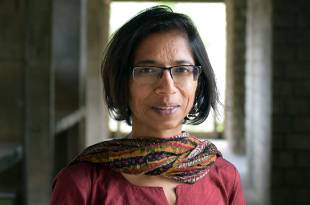
Abstract: Women's property ownership matters for their well-being and agency; it can also advance economic prosperity and promote the human development of future generations. Yet, until recently, lack of data has constrained researchers from gaining a comprehensive overview of gender differences in property ownership in the developing world. Using Demographic and Health Survey data from 41 developing countries, this paper seeks to fill this gap, by investigating the extent of gender gaps in the incidence of property ownership (land and housing) and the factors associated with these gaps, focusing on the role of legal systems. The study finds that there is substantial variation in gender gaps across countries, but in almost all countries men are more likely to own property than women. Within countries, gender gaps are most pronounced for groups that are already disadvantaged, that is, the rural population and the poorest quintile. The disadvantage in property ownership experienced by women reflects a variety of factors, including discriminatory norms and laws on inheritance, property ownership, marital regimes, and protection from workplace discrimination. Countries with more gender egalitarian legal regimes generally have higher levels of property ownership by women, especially housing. These results suggest that reforms to establish a more gender-equitable legislative framework could be an important mechanism to increase women's property ownership.
Authors’ Names: Isis Gaddis, Rahul Lahoti and Hema Swaminathan
Journal Name: Population and Development Review
Journal Article: 'Women’s Legal Rights and Gender Gaps in Property Ownership in Developing Countries' - Prof. Hema Swaminathan

Abstract: Women's property ownership matters for their well-being and agency; it can also advance economic prosperity and promote the human development of future generations. Yet, until recently, lack of data has constrained researchers from gaining a comprehensive overview of gender differences in property ownership in the developing world. Using Demographic and Health Survey data from 41 developing countries, this paper seeks to fill this gap, by investigating the extent of gender gaps in the incidence of property ownership (land and housing) and the factors associated with these gaps, focusing on the role of legal systems. The study finds that there is substantial variation in gender gaps across countries, but in almost all countries men are more likely to own property than women. Within countries, gender gaps are most pronounced for groups that are already disadvantaged, that is, the rural population and the poorest quintile. The disadvantage in property ownership experienced by women reflects a variety of factors, including discriminatory norms and laws on inheritance, property ownership, marital regimes, and protection from workplace discrimination. Countries with more gender egalitarian legal regimes generally have higher levels of property ownership by women, especially housing. These results suggest that reforms to establish a more gender-equitable legislative framework could be an important mechanism to increase women's property ownership.
Authors’ Names: Isis Gaddis, Rahul Lahoti and Hema Swaminathan
Journal Name: Population and Development Review

